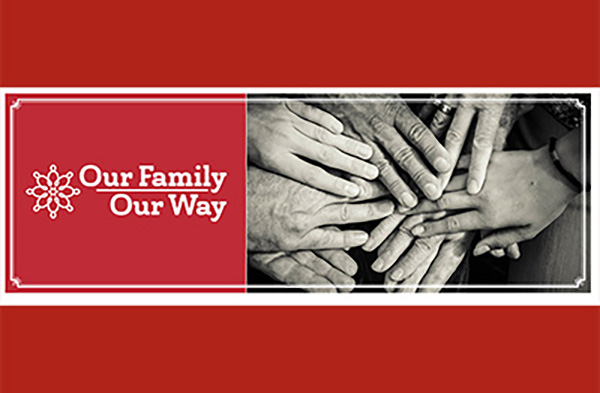Miami’s Scripps Gerontology Center provides free resources for families navigating caregiving decisions
Our Family, Our Way guides families through establishing and coordinating care for loved ones

Miami’s Scripps Gerontology Center provides free resources for families navigating caregiving decisions
A new suite of resources developed by Miami University's Scripps Gerontology Center will help families navigate the difficult process of establishing and coordinating care for a loved one. Informed by years of research and feedback from people with care needs and their families, Our Family, Our Way helps families think and talk about caregiving.
Our Family, Our Way provides carefully designed materials to walk a family through the process of holding a family meeting, where members can talk about what kinds of care and support are needed and wanted and how family members can work together to make it happen. Other resources like videos and tip sheets are also available to help along the way. There is no cost to use any of the family meeting materials or resources; they can be downloaded from the website.
“Some families need help communicating with each other and just don’t know where to begin. Other families need help deciding who will do what, where and when it will happen, and how it will be accomplished,” said Scripps Research Scholar Jennifer Heston-Mullins, who holds a doctorate in gerontology and leads the Our Family, Our Way development team.
“That’s why we created Our Family, Our Way; it’s an innovative process designed to provide that help,” said Heston-Mullins, a licensed social worker who has worked with caregiving families for over 20 years.
In addition to the family meeting materials, the website provides a caregiving resources booklet and tip sheets to help families decide who should be involved in a family meeting, how to prepare for a meeting, how to provide meaningful support from a distance, and other topics. Additional resources include an “All About Me” document that families can use to help them understand what matters most to the person with care needs and a guide for professionals who want to use Our Family, Our Way in their work with caregiving families.
Whether a family has just started thinking about care and support or has been caregiving for a while, communication can make a big difference in quality of life for persons with care needs and their care partners.
“Everyone tends to have their own view of what’s going on and a family meeting can help families identify where they see eye-to-eye and also where more discussion is needed to resolve differences,” Heston-Mullins said.
To learn more, visit www.MiamiOH.edu/ScrippsAging/OFOW.